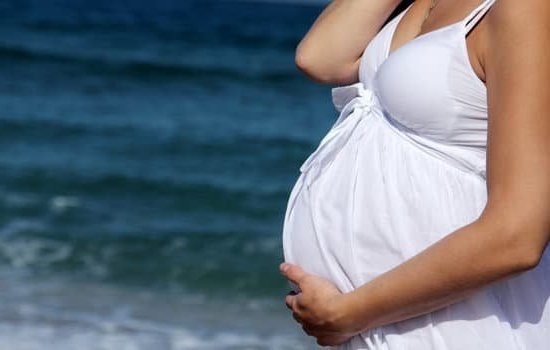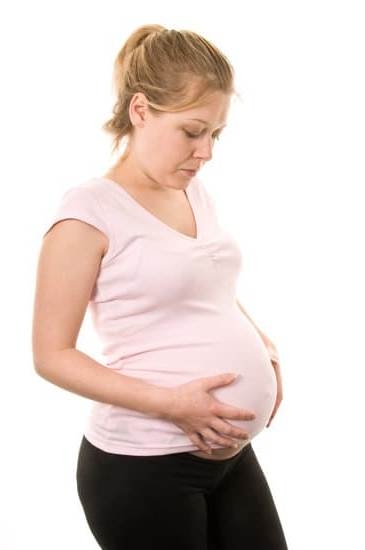Can you have a period during pregnancy? This question may arise when experiencing certain bleeding episodes while expecting. Understanding the relationship between menstruation and pregnancy is crucial to dispelling confusion and ensuring proper medical care. In this article, we will delve into the basics of periods, pregnancy, and how bleeding can sometimes occur during gestation.
Menstrual cycles are a fundamental aspect of a woman’s reproductive system, involving complex hormonal changes that result in ovulation and potential pregnancy. However, when conception occurs, hormonal shifts prevent the shedding of the uterine lining characteristic of a regular menstrual period. Despite this, some women may experience bleeding during pregnancy, leading to uncertainty and concern about what it signifies. This article aims to clarify the distinctions between typical periods and abnormal bleeding in pregnant individuals.
Signs of pregnancy can vary widely among women, with some experiencing classic symptoms such as morning sickness and fatigue, while others may have more subtle indicators. Understanding these signs is essential for early detection and proper prenatal care. Additionally, being aware of potential causes of bleeding during pregnancy can help differentiate between harmless occurrences and serious complications that require medical attention.
Menstrual Cycles Explained
During a menstrual cycle, the body goes through various hormonal changes that ultimately result in either a pregnancy or the shedding of the uterine lining during menstruation. The menstrual cycle typically lasts around 28 days, but it can vary from person to person.
The cycle begins on the first day of menstruation when the uterus sheds its lining, and this phase is called the menstrual phase. Following this, the follicular phase starts where an egg follicle develops in one of the ovaries.
Key Points
- The average menstrual cycle is around 28 days.
- Ovulation usually occurs around day 14 of a regular cycle.
- Hormonal changes play a crucial role in regulating the menstrual cycle.
Can you have a period during pregnancy? It’s important to note that while it is not possible to have a regular period during pregnancy, some individuals may experience light bleeding or spotting that can be confused with a period. This bleeding is usually lighter and shorter than a typical period and may occur around the time when a person would expect their period.
It is essential to differentiate between normal pregnancy bleeding and menstruation during pregnancy to ensure proper care and understanding of what is happening in your body.
How Menstrual Cycles Work
- The follicular phase sees an egg follicle mature in one of the ovaries.
- Ovulation occurs approximately halfway through the cycle when an egg is released from the ovary.
- The luteal phase follows ovulation and prepares the uterus for possible implantation of a fertilized egg.
Signs of Pregnancy
When it comes to determining if you are pregnant, there are several signs and symptoms to look out for. One of the most common indicators is a missed period, but as the question suggests, can you have a period during pregnancy? The answer is no. While some women may experience light bleeding or spotting during early pregnancy, it is not a true menstrual period.
Aside from missed periods, other signs of pregnancy include nausea, fatigue, breast tenderness, frequent urination, and mood swings. These symptoms can vary from woman to woman and may not be overtly noticeable in the early stages of pregnancy. It’s important to pay attention to your body and any changes you may be experiencing.
If you suspect you might be pregnant based on these signs or other symptoms like morning sickness or food cravings, it’s recommended that you take a home pregnancy test or visit your healthcare provider for confirmation. Early detection of pregnancy allows for timely prenatal care and monitoring to ensure both maternal and fetal health throughout the entire term.
Remember that each woman’s pregnancy journey is unique, so it’s essential to listen to your body and seek guidance when needed.
| Signs of Pregnancy | How to Tell |
|---|---|
| Missed Periods | One of the most common indicators of pregnancy |
| Nausea | Feeling queasy or vomiting in the morning can be a sign |
| Fatigue | Experiencing extreme tiredness even after adequate rest |
Bleeding During Pregnancy
During pregnancy, bleeding can be a source of worry for many expectant mothers. While it is not typical to have a period during pregnancy, some women may experience bleeding that can be mistaken for a menstrual cycle. Understanding the difference between normal pregnancy bleeding and menstruation is crucial in ensuring both the health of the mother and the developing fetus.
To help differentiate between period-like bleeding and normal pregnancy bleeding, here are some key points to consider:
- Menstrual Blood vs. Pregnancy Bleeding: Menstrual blood is typically bright red in color and flows heavier than pregnancy bleeding. In contrast, pregnancy bleeding, also known as implantation bleeding, is usually light pink or brown and occurs when the fertilized egg implants itself into the uterine lining.
- Timing: Menstrual cycles occur approximately every 28 days, while pregnancy bleeding can happen around the time of a missed period or a few weeks into the early stages of pregnancy.
- Symptoms: Along with bleeding, other symptoms like cramping or lower back pain can also accompany a period. Pregnancy bleeding may be less accompanied by these symptoms.
It is important to remember that any type of vaginal bleeding during pregnancy should be promptly discussed with a healthcare provider. While some causes of bleeding during pregnancy are harmless, such as implantation bleeding or cervical changes, others could indicate more serious issues like ectopic pregnancies or miscarriages. Keeping communication open with your doctor can help ensure proper monitoring and management throughout your pregnancy journey.
Overall, while having a period during pregnancy is not typical, understanding the nuances of vaginal bleeding during gestation will help expectant mothers navigate any concerns that arise. Seeking prompt medical advice if experiencing abnormal symptoms will ensure both maternal and fetal well-being throughout this precious time.
Understanding the Difference Between Periods and Pregnancy Bleeding
During pregnancy, understanding the difference between periods and pregnancy bleeding is crucial for expecting mothers. While it is not common to have a period during pregnancy, some women may experience bleeding that can be mistaken for a menstrual cycle. It is essential to distinguish between the two to ensure a healthy pregnancy and address any potential concerns promptly.
Characteristics of Menstrual Periods
Menstrual periods typically involve the shedding of the uterine lining when fertilization of an egg does not occur. This shedding results in bleeding that lasts an average of 3-7 days. The flow starts off light, becomes heavier, and then tapers off towards the end. Menstrual blood tends to be bright red in color and may include blood clots as well.
Characteristics of Pregnancy Bleeding
On the other hand, bleeding during pregnancy can vary in terms of color, duration, and consistency. Some women may experience light spotting or pinkish discharge, while others may have heavier bleeding that resembles a period. However, unlike a menstrual period, pregnancy bleeding is usually shorter in duration and less consistent in flow. It also tends to be lighter in color and does not contain as many blood clots.
Causes of Bleeding During Pregnancy
Bleeding in pregnancy can be a cause for concern, and it is important to understand the various reasons why it may occur. One common cause of bleeding during pregnancy is implantation bleeding. This occurs when the fertilized egg attaches itself to the uterine lining, causing some light spotting. Implantation bleeding usually occurs around the time of your expected period and can be mistaken for a regular period.
Another possible cause of bleeding during pregnancy is cervical changes. As the cervix begins to soften and expand in preparation for childbirth, it may result in some spotting or light bleeding. This type of bleeding is typically harmless but should still be discussed with a healthcare provider to rule out any complications.
In some cases, bleeding during pregnancy can be a sign of something more serious, such as a miscarriage or an ectopic pregnancy. If you experience heavy bleeding, severe cramping, or passing tissue-like clots, it is crucial to seek immediate medical attention. It is always better to err on the side of caution and have any unusual bleeding checked out by a healthcare professional.
| Cause | Description |
|---|---|
| Implantation Bleeding | Light spotting when fertilized egg attaches to uterine lining |
| Cervical Changes | Spotting due to cervix preparing for childbirth |
| Serious Complications | Heavy bleeding, severe cramping could indicate miscarriage or ectopic pregnancy |
When to Seek Medical Help
During pregnancy, experiencing bleeding can be a cause for concern and may lead to confusion about whether it is related to menstruation or potential complications. It is important to understand that while it is not possible to have a period during pregnancy, some women may experience bleeding that can mimic a period. This bleeding is known as implantation bleeding and typically occurs around the time of the expected period when the fertilized egg implants itself in the uterus.
However, if you are experiencing heavy bleeding that lasts longer than a day or is accompanied by severe cramping or other symptoms, it could indicate a more serious issue such as miscarriage or ectopic pregnancy. In these cases, it is crucial to seek medical help immediately. Additionally, if you are unsure whether you are pregnant or not and are experiencing abnormal bleeding, it is recommended to consult with a healthcare provider to rule out any potential complications.
In some cases, bleeding during pregnancy can be a sign of conditions such as placenta previa or placental abruption which require prompt medical attention. It is always better to err on the side of caution and seek medical help if you notice any unusual bleeding during pregnancy. Remember that every person’s body and pregnancy experience can be different, so do not hesitate to reach out for assistance if you have any concerns regarding bleeding during your pregnancy journey.
Conclusion
In conclusion, the question of whether you can have a period during pregnancy is a common concern for many women. The answer is no, you cannot have a true period while pregnant because menstruation is the shedding of the uterine lining, which does not occur when pregnant. However, some women may experience bleeding during pregnancy which can be mistaken for a period. It is important to understand the differences between normal menstrual bleeding and pregnancy-related bleeding.
If you are experiencing any type of bleeding while pregnant, it is essential to seek medical help promptly. While some instances of bleeding during pregnancy may be harmless and considered normal, it is always better to err on the side of caution and consult with your healthcare provider. They can provide guidance on whether the bleeding is a cause for concern or if it is within the range of normal variations in pregnancy.
Overall, being aware of your body’s changes and understanding the distinctions between periods and pregnancy bleeding can help alleviate anxiety and ensure a healthy pregnancy journey. Remember that every woman’s experience with pregnancy is unique, so don’t hesitate to reach out to your healthcare provider if you have any questions or concerns about bleeding during pregnancy.
Frequently Asked Questions
Can You Get a Full Period and Still Be Pregnant?
It is possible to experience bleeding similar to a period during pregnancy, but it is not actually a true menstrual period. This type of bleeding can occur due to implantation bleeding or other reasons unrelated to menstruation.
Can You Bleed Like a Period in Early Pregnancy?
Sometimes, women may mistake early pregnancy bleeding for a period because the flow and timing can be similar in some cases. However, this bleeding is often lighter and shorter in duration compared to a typical menstrual period.
Why Is My Pregnancy Test Positive but I Got My Period?
If you receive a positive pregnancy test but still get your period, it could be due to various reasons such as early pregnancy loss (miscarriage), ectopic pregnancy, or chemical pregnancy. It is important to consult with a healthcare provider for further evaluation and guidance on next steps.

Welcome to my fertility blog. This is a space where I will be sharing my experiences as I navigate through the world of fertility treatments, as well as provide information and resources about fertility and pregnancy.





